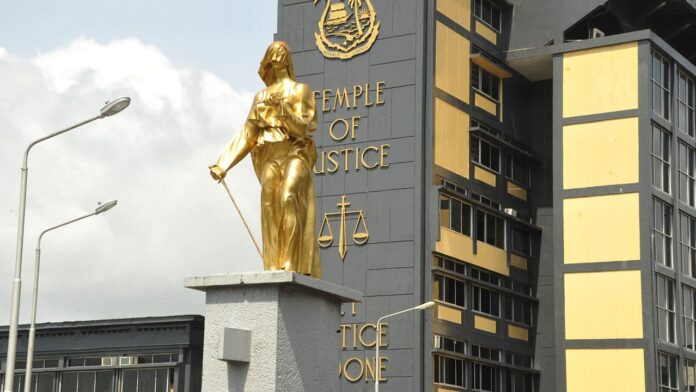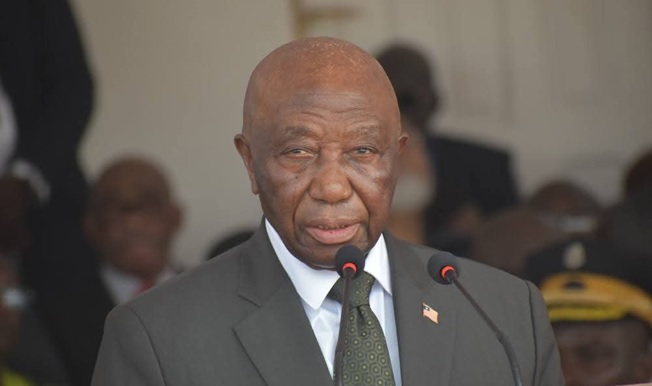MONROVIA, LIBERIA – The Supreme Court of Liberia on Tuesday, February 17, 2025, ruled in favor of the Assets Recovery Team, dismissing a petition filed by the management of Gracious Ride, which sought to challenge the team’s legality. This decision paves the way for the government-backed task force to proceed with its mandate to recover state assets.
The ruling comes after months of legal battles following Gracious Ride’s attempt to block the team’s operations. The company’s management argued that the executive order establishing the Assets Recovery Team was unconstitutional and that its enforcement could violate property rights. However, the Supreme Court found no merit in these claims, granting the green light for the team to function as intended.
The Assets Recovery Team was created under an executive order issued by President Joseph Boakai as part of his administration’s efforts to combat corruption and reclaim government assets allegedly misappropriated by former officials. The team’s formation has been a subject of intense debate, with critics arguing that it could be used as a political tool to target individuals linked to the previous administration.
Supporters of the initiative believe that the Supreme Court’s decision reinforces the administration’s commitment to accountability and transparency. They argue that asset recovery is a necessary step toward restoring public trust and ensuring that individuals who unlawfully benefited from state resources are held accountable.
For weeks, the legal challenge by Gracious Ride had put the Assets Recovery Team’s work on hold. The company, known for providing transportation services, had taken the matter to court after reports surfaced that its assets could be subject to government investigation. The management insisted that any attempt to seize its property would constitute an abuse of power, prompting the legal dispute.
The Supreme Court’s ruling not only dismisses Gracious Ride’s petition but also sets a precedent for future cases involving asset recovery. Legal experts believe the decision strengthens the executive order’s standing, making it difficult for other entities to challenge the team’s authority moving forward.
Following the court’s verdict, officials within the Boakai administration have expressed satisfaction with the outcome. A senior government official, speaking on condition of anonymity, described the ruling as a “major victory for the fight against corruption.” The official further stated that the Assets Recovery Team would now move forward with its work “without legal obstacles standing in the way.”
Meanwhile, opponents of the ruling, particularly those aligned with the former administration, have criticized the decision. Some have accused the judiciary of siding with the government, claiming that the ruling was politically motivated. Others argue that the recovery team could be used to settle political scores rather than to enforce genuine accountability.
Gracious Ride’s legal representatives have yet to issue a formal statement following the Supreme Court’s decision. However, sources close to the company suggest that management is considering its legal options, including the possibility of seeking intervention from international bodies or human rights organizations.
With this ruling, the Assets Recovery Team is expected to intensify its efforts to track and recover assets allegedly acquired through illicit means. The team’s mandate includes investigating suspicious transactions, reclaiming government properties, and ensuring that individuals found guilty of corruption face legal consequences.
As the government moves forward, questions remain about how the Assets Recovery Team will operate in practice. Observers are closely watching to see whether the initiative will be implemented fairly or if it will target specific individuals while overlooking others.
The Supreme Court’s decision has also raised concerns about due process. Legal analysts warn that asset seizures must be carried out transparently and in accordance with the law to prevent potential abuses of power. Some have suggested that an independent oversight body should be put in place to monitor the recovery process.
The ruling has reignited public discourse on corruption and accountability in Liberia. Many citizens believe that previous governments have failed to take meaningful action against those who misused public resources. The Supreme Court’s decision is seen by some as an opportunity to change that narrative.
At the same time, the controversy surrounding the Assets Recovery Team highlights the deep political divide in Liberia. Critics of the Boakai administration argue that the government should focus on improving the economy and addressing pressing social issues rather than prioritizing asset recovery.
Nevertheless, the ruling solidifies the government’s ability to move forward with one of its key anti-corruption initiatives.






